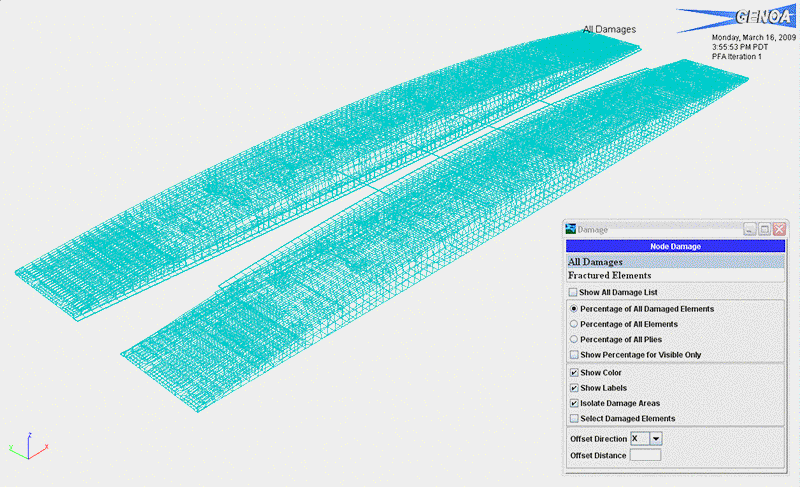Fatigue failure—cracking of under repeated stressing—has been a concern of engineering for decades. As sources of vibration and of dynamic loading of materials have increased, fatigue failures have become more common and increasingly important in engineering design. Not surprisingly, the rapid utilization of composite materials within the aerospace industry has made fatigue behavior of composite materials an important topic of discussion. Exposure of advanced polymeric matrix composite materials (, to “real life” use and environment may result in irreversible changes in the original properties of the material. This process of change over time is loosely referred to as “aging”. Material aging may translate to structural changes in mission-critical components that can have potentially catastrophic effects.
For large transport commercial aircraft “durability” is defined as ability of the structure to retain adequate properties (strength, stiffness, and environmental resistance) throughout its service life. Damage tolerance is defined to be the ability of the structure to sustain design limit loads in the presence of damage caused by fatigue, corrosion, environmental effects, accidental events, and other sources until such damage is detected, through inspections or malfunctions and repaired. Structural damage tolerance ensures that damage will be found by maintenance practices before becoming a safety threat.
Through many industrial projects MCQ and GENOA have utilized to predict fatigue behavior in composites, metals, bonded and hybrid structures and which resulted on cost savings, optimal design, and Certification by Analysis Supported by Test The physics-based de-homogenized Multi-Scale Progressive Failure Analysis (MS-PFA) methodology tracks damage and fracture mechanism evolution and interaction throughout the structureGENOA explores the physics of fatigue, incorporates the effects of aging and quantifies damage tolerance, in order to assess durability of a part, component of complete structure, consistent with the building block approach.

GENOA allows engineers to perform a GENOA Multi Scale Progressive Failure Analysis and characterize the fatigue behavior of composite structures.
Using GENOA with a commercial FEA solver, engineers will be able to
Supports full breadth of 2D/3D composite architectures
Determines composite damage
Supports Detailed Micromechanical Degradation
Supports service loading
Download the latest case study.
Download the latest datasheets.

2601 Main Street #660 Irvine, CA 92614
(562) 961 - 7827
info@alphastarcorp.com
@2022 - 2023 AlphaSTAR. All rights reserved. Trademarks used herein are trademark or registered tradmarks of AlphaSTAR. All other names and brands are registered trademarks of their respective companies.
